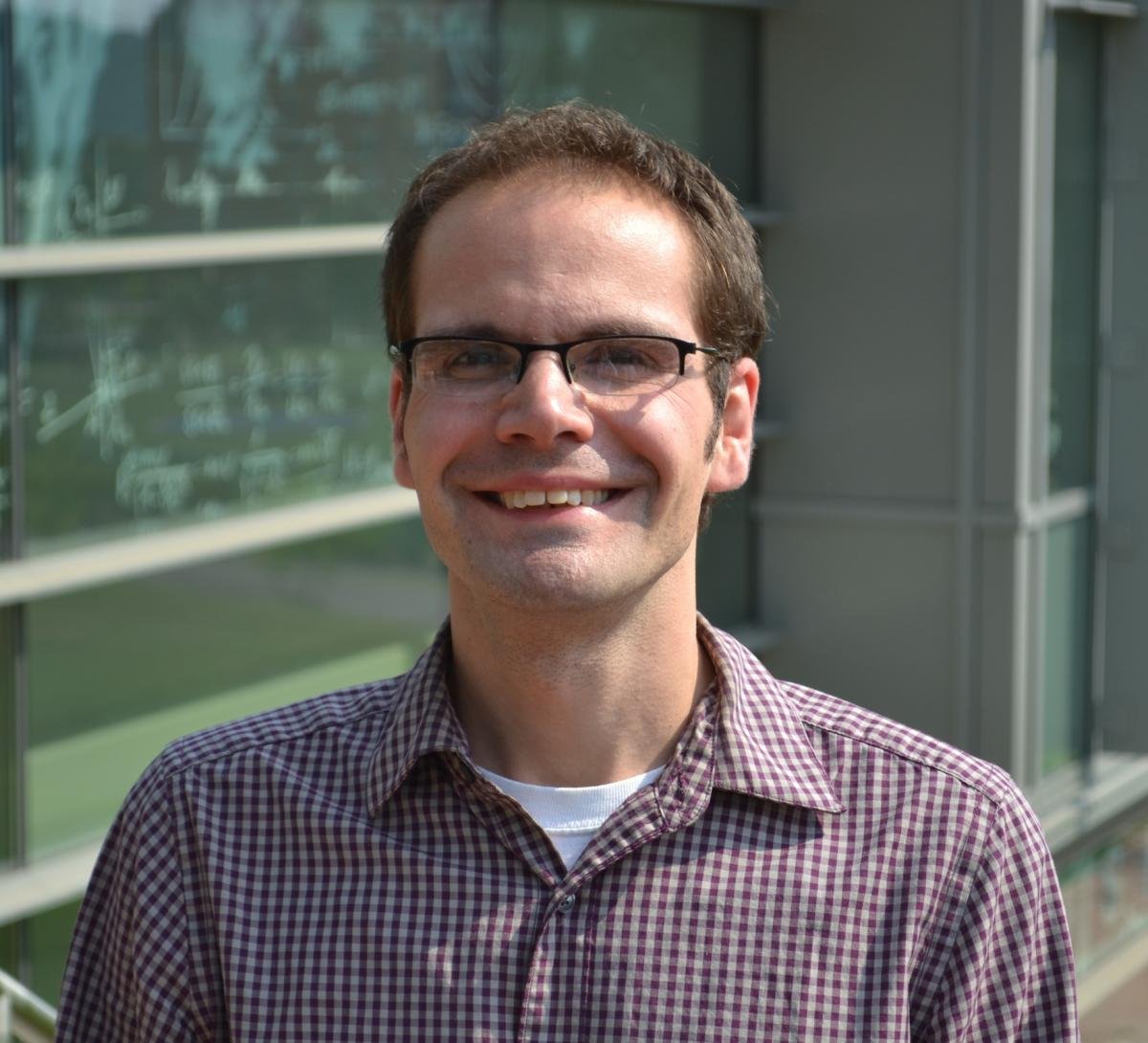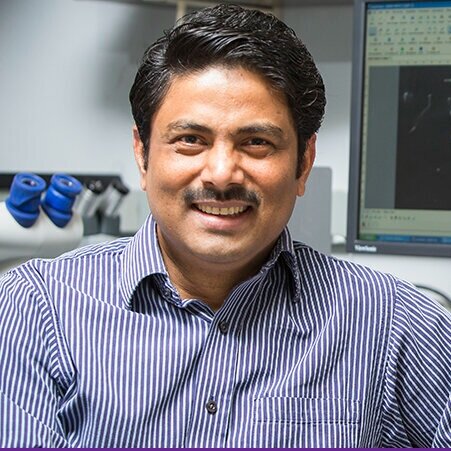2023 MAMPM SCIENTIFIC PROGRAM COMMITTEE
Rita Tamayo, PhD
MAMPM 2023 Meeting Chair
University of North Carolina at Chapel Hill School of Medicine
Dr. Rita Tamayo completed her PhD in Microbiology and Immunology at the University of Texas Health Science Center in San Antonio and conducted her postdoctoral research at Tufts University School of Medicine. She is a Professor of Microbiology and Immunology at the UNC School of Medicine and a UNC Simmons Scholar. Dr. Tamayo’s lab studies the regulatory mechanisms controlling the motility and virulence of Clostridium difficile, the most common cause of nosocomial infections in the United States and an urgent public health threat. Her lab has characterized the role of the bacterial signaling molecule c-di-GMP and its RNA-based sensors (riboswitches) in controlling multiple modes of C. difficile motility, as well as cytotoxin production. In addition, her group is defining the mechanisms of phase variation and determining the consequences of the resulting phenotypic heterogeneity to C. difficile physiology and pathogenesis. Dr. Tamayo’s lab is committed to providing scientific and career mentoring in an inclusive research environment.
Shaun Brinsmade, PhD
Georgetown University
Dr. Shaun Brinsmade is an Associate Professor with the Department of Biology with a joint appointment within the Department of Microbiology and Immunology. Dr. Brinsmade received a BS from the University of Connecticut-Storrs in 2001, followed by a PhD from the University of Wisconsin-Madison in 2007. Research in the Brinsmade Laboratory seeks to understand how bacteria control pathogenesis using nutritional and host cues during infection. Currently they are focused on the Gram-positive, opportunistic pathogen Staphylococcus aureus.
Brian Conlon, PhD
University of North Carolina at Chapel Hill School of Medicine
Dr. Brian Conlon is a native of Co. Galway in Ireland. He attended the National University of Galway, Ireland as an undergraduate and was awarded a PhD from University College Dublin in 2009 where he worked in Dr. Jim O'Gara's lab examining biofilm formation in Staphylococci. In 2010, he began working in Dr. Kim Lewis laboratory at Northeastern University in Boston, as a postdoc and then as a senior research scientist. He began his independent research career at University of North Carolina at Chapel Hill in August 2016.
F. Heath Damron, PhD
West Virginia University School of Medicine
Dr. Heath Damron is an Assistant Professor in the the Department of Microbiology, Immunology, and Cell Biology in the School of Medicine at West Virginia University in Morgantown, WV. He is also the Director of the Vaccine Development Center at the WVU Health Sciences Center. The main focus of Dr. Damron’s research is to understand B. pertussis infections in order to develop a next-generation vaccine.
Kimberly Davis, PhD
Johns Hopkins University Bloomberg School of Public Health
Dr. Kimberly Davis is an Assistant Professor in the W. Harry Feinstone Department of Molecular Microbiology and Immunology at the Johns Hopkins University Bloomberg School of Public Health. Dr. Davis earned a BSc and MSc from the University of Michigan. She then completed her PhD at the University of Pennsylvania in 2011. The goals of her research lab are to better understand how individual bacterial cells within a population contribute to disease, and to determine how to develop more effective therapeutics to target these populations.
Johanna Elfenbein, DVM, PhD, DACVIM
University of Wisconsin-Madison School of Veterinary Medicine
Dr. Johanna Elfenbein earned her undergraduate degree from Harvard College, her DVM from the University of Florida, and her PhD from Texas A&M University. In addition to research training, Dr. Elfenbein pursued advanced clinical training in large animal internal medicine and is a Diplomate of the American College of Veterinary Internal Medicine. Her love for Salmonella came from years of clinical practice where she was amazed by the spectrum of disease caused by the organism.
Erin Harberts, PhD
Towson University
Dr. Erin Harberts is an Assistant Professor in the Department of Biological Sciences at Towson University. Dr. Harberts received a BA in Molecular Biology from Colgate University, followed by a PhD in Microbiology and Immunology from the University of Maryland School of Medicine. Her areas of expertise include innate immunity, cell signaling, and host-pathogen interactions.
Melissa M. Kendall, PhD
University of Virginia School of Medicine
Dr. Melissa Kendall is an Associate Professor in the Department of Microbiology, Immunology, and Cancer Biology at the University of Virginia School of Medicine. Dr. Kendall received her undergraduate degree in French from Michigan State University in 1995. After college, she entered the Environmental Sciences and Resources: Biology program at Portland State University. Her research explored the physiology and ecology of microbes living in permanently cold, anoxic marine sediments and primarily focused on methanogens, the methane-producing Archaea, and their syntrophic interactions. After receiving her PhD in 2006, she joined Dr. Vanessa Sperandio’s lab at the University of Texas Southwestern Medical Center for post-doctoral training. During her fellowship training, Dr. Kendall became interested in how EHEC integrates environmental signals to recognize a host environment and modulate expression of genes important for pathogenesis. This interest remains the driving force behind the research in her lab.
MD A. Motaleb, PhD
East Carolina University Brody School of Medicine
Dr. MD Motaleb is an Associate Professor in the Department of Microbiology and Immunology at the East Carolina University Brody School of Medicine. Dr. Motaleb received his BS and MS from the University of Dhaka in Bangladesh, and his PhD from Osaka University in Japan. His research focuses on Borrelia burgdorferi as well as other pathogenic spirochetes.
Matthew Wolfgang, PhD
University of North Carolina at Chapel Hill School of Medicine
Dr. Matthew Wolfgang is an Associate Professor in the Department of Microbiology and Immunology at the UNC School of Medicine. Dr. Wolfgang completed his PhD at the University of Michigan, and conducted postdoctoral research at the University of Washington and Harvard Medical School. Dr. Wolfgang’s research focuses on Pseudomonas aeruginosa, a Gram-negative opportunistic pathogen responsible for a variety of diseases in individuals with compromised immune function. This organism poses the greatest risk to the hospitalized population, the elderly, immunosuppressed individuals and those with co-morbid illness, such as heart and pulmonary disease, diabetes, cancer and AIDS. The medical importance of this organism is further underscored by the fact that it is the primary cause of morbidity and mortality in individuals with cystic fibrosis (CF) where it causes chronic lung infection.
M. Ammar Zafar, PhD
Wake Forest University School of Medicine
Dr. Ammar Zafar is an Assistant Professor of Microbiology and Immunology at the Wake Forest University School of Medicine. Dr. Zafar received his PhD from the University of Maryland - Baltimore in 2009. His research interests include bacterial infections, enterobacteriaceae, bacterial drug resistance, host-pathogen interactions, and Streptococcus Pneumoniae.











